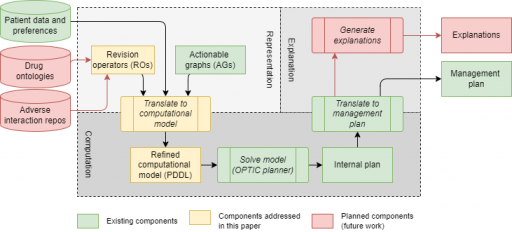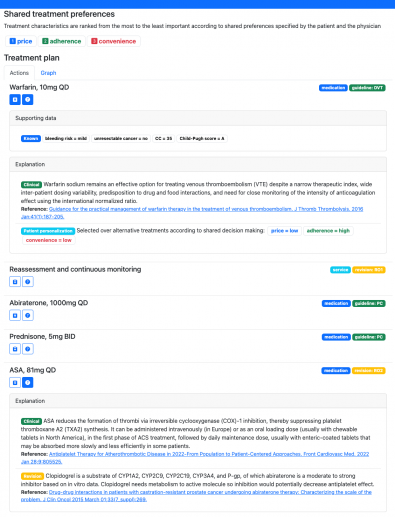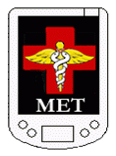Research
MET (Mobile Emergency Triage) research aims to provide computer-based support for a number of decision problems that occur at the point of care in a healthcare institution. The goal of this research is to create methodological and applied health informatics solutions that support healthcare practitioners throughout the patient management process. Our interdisciplinary team of researchers and graduate students work on developing novel methods and systems for:
- supporting coordination and cooperation within an interdisciplinary healthcare team (IHT).
- supporting mitigation (identification and addressing) of adverse interactions between multiple clinical practice guidelines (CPGs) used in management of comorbid patient,
- supporting clinical decision making by constructing decision models from patient data using data mining techniques.
Multimorbidity
Managing comorbid (and often polypharmacy) patients is clinically challenging because of the complexities associated with identifying and mitigating adverse interactions across diseases and medications. We are working on new approaches to mitigate adverse interactions (drug-drug and drug-disease) that occur while concurrently applying multiple clinical practice guidelines. We are developing MitPlan, a system that implements automated planning (an area of AI) and uses a planner to personalize the treatment plan that is optimized according to factors such as financial cost, resource availability, patient’s adherence to therapy, among others. Secondary knowledge required to mitigate adverse interactions is represented as revision operators. Clinical practice guidelines together with revision operators are formalized as task network models and manipulated using graph rewriting operations. MitPlan will be deployed in practice as a decision support tool for physicians to be used during a patient encounter when developing treatment options.

Explainability
Supporting the management of a multimorbid patient requires advanced AI methods that identify adverse interactions, mitigate them, and generate an interactions-free treatment plan. Given the complexity of developing a treatment plan for a multimorbid patient, explaining treatment decisions made by these methods establishes trust with the clinician and supports a shared decision-making process. We develop methods for explaining a treatment plan where mitigations of adverse interactions are identified and applied using automated planning within our MitPlan system. Our post-hoc approach, inspired by the use of explainability in automated planning, enables MitPlan to provide insights to a clinician by explaining: (1) the actions that make up a treatment plan, (2) those actions in the treatment plan necessary to mitigate adverse interactions, and (3) the impact of factors such as patient preferences, adherence, or treatment burden on the selection of a specific treatment plan.

